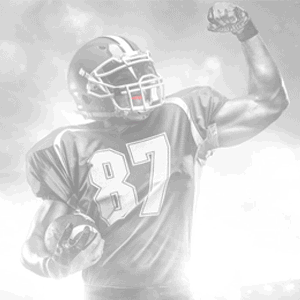Is It Time To Get A New Mouthguard? Here’s Your 5-Point Checklist

 It’s never a bad time to sit back and reflect on what your team needs in order to improve the season. One of the most important areas you should consider upgrading is your team’s equipment.
It’s never a bad time to sit back and reflect on what your team needs in order to improve the season. One of the most important areas you should consider upgrading is your team’s equipment.
While not all athletic equipment needs to be replaced each year — as items like helmets and shoulder pads have a relatively long shelf life — there are some pieces that may take some extra wear and tear and must be refreshed to keep your players safe. Things like cleats and mouthguards.
But how do you know if it’s time to upgrade your team’s protection or not? When it comes to equipment like mouthguards, it’s actually pretty simple. Just use this five-point checklist to see if your players need a new mouthguard for the upcoming season:
1. Does the mouthguard fit?
One of the easiest ways to tell if a player needs a new mouthguard is to see if it fits properly. In order to get the proper protection, a mouthguard must fit snuggly to the player’s upper teeth without having to be held in place by the tongue or by biting.
An improper fit doesn’t just compromise comfort and protection, it actually inhibits player performance. When an athlete’s mouthguard is constantly floating in their mouth, it becomes a major distraction, taking their head out of the game. And that ill-fitting mouthguard also makes communicating and breathing very difficult.
When a mouthguard fits perfectly and doesn’t move out of place, it doesn’t just protect your players, it actually enhances their performance.
2. Is the mouthguard torn or ripped?
You wouldn’t send your players out on the field, court or ice with a cracked helmet, right?
While a little wear and tear is expected over time, mouthguards should not be worn with any physical damage. Much like an ill-fitting guard, a mouthguard that is starting to rip or tear is a mouthguard with compromised comfort and protection.
Rips and tears have the ability to cause gum and tissue irritation, which in time may become infected. Damage also allows saliva and water to get into the guard, speeding up the deterioration process, as moisture gives bacteria the potential to grow. Those are easily avoided complications.
3. Is the mouthguard discolored?
Sometimes a rip or tear may be small enough that it’s hard to detect with the naked eye; but another way to tell if a mouthguard is breaking down is to check for discoloration.
Discoloration is a sure sign of deterioration and typically means that the mouthguard has been damaged in some way. It is also a sign that bacteria is getting into the mouthguard.
If one of your players is wearing an oddly-colored mouthguard, it may be time to upgrade.
4. Is the mouthguard causing sores?
While rips and tears may oftentimes be the cause of mouth soreness, they aren’t always the culprit.
If a player is developing a sore due to their mouthguards, you first want to check with the manufacturer to see if there are any adjustments to be made. This is especially true for younger athletes, whose mouths are still changing and growing.
If the discomfort and soreness continue, it may be time for a new mouthguard, as soreness is an obvious sign of compromised comfort and will lead to improper or lack of use, sacrificing protection. Sores also give bacteria access points into the body, which could lead to illness.
5. Does the mouthguard look like a dog’s chew toy?
Again, like any piece of athletic equipment, mouthguards take some wear and tear throughout the year. And like most equipment, a little wear and tear doesn’t make the item obsolete. But what if the piece of equipment is chewed up to the point that it’s unrecognizable?
If your player’s mouthguard looks like it was chewed on by a dog, it’s time to get a new mouthguard.
If your athlete’s are simply “chewers,” you also have options! Some mouthguards can be made with a denser — but not thicker — material so your players’ mouthguards have better “chewing” resistance, without sacrificing comfort or protection.
When your players need a new mouthguard, only one gives them the protection, comfort and performance they need: A Gladiator the industry-leader in custom mouthguards.






